Discover Big Take Asia
Big Take Asia

Big Take Asia
Author: Bloomberg
Subscribed: 1,356Played: 13,869Subscribe
Share
© 2025 Bloomberg
Description
We’re taking The Big Take to Asia. Each week, Bloomberg’s Oanh Ha tells a story from the home of the world's most dynamic economies - and the markets, tycoons and businesses that drive the ever-shifting region.
99 Episodes
Reverse
Nvidia released its third quarter earnings Wednesday, crushing estimates and easing Wall Street’s concerns about an AI bubble. On today’s Big Take podcast, Bloomberg Tech’s Ed Ludlow sits down with David Gura to discuss his post-earnings interview with Jensen Huang – what the Nvidia CEO had to say about the company’s breakneck growth, so-called circular deals, and potential expansion into China. Read more: Nvidia’s Huang Says Company Has Plenty of New Chips to Sell It's OK, Nvidia Says There's No AI Bubble See omnystudio.com/listener for privacy information.
China is investing heavily in cutting-edge genetic experiments. It’s part of their quest to become a biotech superpower. On today’s Big Take Asia Podcast, host K. Oanh Ha, Bloomberg’s Karoline Kan and Oxford University geneticist Andy Greenfield discuss China’s pharmaceutical ambitions and the loose regulatory environment that allows the animal testing industry to thrive. Read more: China Pushes Boundaries With Animal Testing to Win Global Biotech RaceSee omnystudio.com/listener for privacy information.
Wall Street banks are on a hiring spree across India, recruiting workers for everything from software engineering to risk management as part of a decades-long shift away from support roles toward high-skill positions. On today’s Big Take Asia Podcast, host David Gura sits down with Bloomberg’s Siddhi Nayak to look at India’s changing job landscape. What to expect as Wall Street continues to expand into its tech hubs – and how Donald Trump’s H1-B visa crackdown could accelerate that push. Further listening: Trump’s H-1B Visa Fee Dashes Indian Workers’ American DreamsSee omnystudio.com/listener for privacy information.
Asian nations are walking a tightrope between Washington and Beijing – juggling trade, tech and security pressures as the heavyweights vie for influence. On today’s Big Take Asia Podcast, host K. Oanh Ha speaks with Adam Farrar, Bloomberg’s senior geoeconomics analyst for Asia Pacific, to unpack what may have been overlooked at the APEC summit as the Xi-Trump show came to town. Read more: Xi Calls for Stable Supply Chains After Sealing Trump Truce Further listening: Trump Got an ‘Amazing’ Meeting. China Got Much-Needed Time Listen and follow The Big Take Asia on Apple Podcasts, Spotify or wherever you get your podcastsSee omnystudio.com/listener for privacy information.
On Thursday, President Donald Trump and President Xi Jinping of China announced a one-year truce in their trade war, capping six contentious months of negotiations and retaliatory tariffs between the world’s two largest economies. On today’s Big Take podcast, Bloomberg’s Global Trade Editor Brendan Murray and Executive China Editor John Liu join host David Gura to parse the details of the new US-China trade agreement — and why both countries are moving forward without a permanent deal. Read more: Trump and Xi Put Limits on Their Trade War in a ‘12 Out of 10’ SummitSee omnystudio.com/listener for privacy information.
The US-China tariff war has upended global manufacturing, forcing companies like Chicago-based Learning Resources to fundamentally change how and where its products are made. On today’s Big Take Asia podcast, K. Oanh Ha heads to Vietnam, where the toymaker has begun shifting the production of its popular children’s toys. We examine how the company is managing its complex shift from China – where its toys have been made for decades – what the factory boom means for communities on the ground in Vietnam and how all of this will impact consumers. Further listening: The American Toymaker Suing Trump Over Destructive TariffsXi’s Top Bargaining Chip Is a Trade War Game ChangerSee omnystudio.com/listener for privacy information.
China’s dominance of rare earths has given Xi Jinping powerful leverage over Donald Trump ahead of their expected meeting next week. On today’s Big Take Asia podcast, host K. Oanh Ha and Bloomberg’s Daniel Ten Kate dig into how China is weaponizing rare earths and what the economic standoff means for a trade deal and the future of US-China relations. Read more: Xi Is Never Giving Up His Newfound Leverage Over TrumpFurther listening: Xi’s Bromance Diplomacy Is Challenging Trump’s World OrderThe Rebel Army Behind One of the World’s Major Rare-Earth SuppliesSee omnystudio.com/listener for privacy information.
Gold always shines during uncertain times, but escalating tensions between the US and China and signals from the Federal Reserve that the US could see at least one more rate cut this year have propelled gold – and silver – to record highs. This week on the Big Take, Bloomberg precious metals reporter Jack Ryan and host Sarah Holder talk about what’s pushing up gold’s value — and what history can teach us about how this gold rush could end. Read more: Gold (XAUUSD) Trades Near Record on Fed Rate-Cut Sign, US-China Tensions - Bloomberg See omnystudio.com/listener for privacy information.
South Korean companies are offering workers tens of thousands of dollars (tax free) to have babies. But are cash incentives enough to address the country’s record-low fertility rates? K. Oanh Ha and Bloomberg’s Hyonhee Shin explore on today’s Big Take Asia podcast. Read more: Korean Companies Pay Employees Huge Sums to Have More KidsSee omnystudio.com/listener for privacy information.
For the first time in history, Japan’s ruling party has elected a woman as its leader. Sanae Takaichi, 64, is an unconventional figure — and now she’s on track to become Japan’s first female prime minister. On today’s Big Take Asia Podcast, host K. Oanh Ha speaks with Bloomberg’s Paul Jackson about Takaichi’s path to power, why her politics aren’t resonating with some Japanese women and what her leadership could mean for Japan’s economy and its relationship with the United States. Read more: Japan Braces for Shift to Right Under ‘Iron Lady’ Fan Takaichi - BloombergSee omnystudio.com/listener for privacy information.
President Donald Trump’s H-1B visa fee has sent shockwaves through India’s workforce, which makes up roughly 70% of recipients. On today's Big Take Asia Podcast, host K. Oanh Ha and Bloomberg’s Sankalp Phartiyal unpack how the policy could disrupt careers, reshape global talent flows and shatter the American dream for tens of thousands of workers. Read more: Why Trump Is Charging a $100,000 Fee for H-1B VisasTrump’s $100,000 Visa Targets a $280 Billion India Success Story Further listening: India Won’t Stop Buying Russian Oil. Now It’s Paying the Price. Watch, from Originals: How an Army of Middlemen Game the US Work Visa SystemSee omnystudio.com/listener for privacy information.
After months of negotiation, the US and China have reached a tentative agreement to secure TikTok’s future in the US. On today’s Big Take Asia Podcast, host K. Oanh Ha sits down with Bloomberg’s Josh Wingrove and Mark Anderson to unpack TikTok’s “America-First” era. They discuss what you need to know about potential changes to the platform, how a majority American-controlled board could impact the app’s future and what the deal tells us about China-US negotiations moving forward. Read more: TikTok’s Algorithm to Be Secured by Oracle Under Trump Deal What We Do and Don’t Know About US TikTok Deal With China Further listening: Americans Flocked to RedNote as the TikTok Ban Loomed. Will the Party Last?See omnystudio.com/listener for privacy information.
Across South Asia, Gen Z protestors are flooding the streets, demanding change. These protests have resulted in some of the worst violence Nepal and Indonesia have seen in years, presenting a challenge to the ruling elites. On today’s Big Take Asia podcast, host K. Oanh Ha speaks with Bloomberg Opinion’s Karishma Vaswani about what’s driving this wave of youth-led uprisings and what it would take for lasting political change. Read more: Gen Z Protesters Are Challenging Asia’s Old Guard Further listening: After a Deadly Student Uprising, Bangladesh Starts Over, AgainSee omnystudio.com/listener for privacy information.
The leaders of China, Russia and India shared smiles and handshakes, putting on a surprising show of unity in a striking moment that went viral earlier this month. On today’s Big Take Asia Podcast, host K. Oanh Ha talks to Bloomberg’s Daniel Ten Kate about what’s driving their alignment and what the shift means for Trump and the US-led world order. Read more: Xi Unites a World That Doesn’t Want to Be Pushed Around by Trump Further listening: India Won’t Stop Buying Russian Oil. Now It’s Paying the Price.What Xi Jinping’s Military Purge Means for China and the World Watch, from Originals: How Xi Unleashed China’s Biggest Military Purge Since MaoSee omnystudio.com/listener for privacy information.
Beijing is holding its first military parade since 2019, showcasing the strength of China’s armed forces. Underneath the show of power, a Bloomberg investigation has found President Xi Jinping is orchestrating the biggest purge of military leadership since Mao Zedong. On today's Big Take Asia Podcast, host K. Oanh Ha speaks with Bloomberg's John Liu about the dramatic restructuring of China’s military and what this sweeping shakeup could mean for the rest of the world. Read more: Xi Unleashes China’s Biggest Purge of Military Leaders Since Mao Further listening: The Shadowy Fleet of Tankers Moving Iranian Oil to China Tensions Are Growing in the South China SeaSee omnystudio.com/listener for privacy information.
South Korean shipyards are busier than they’ve been in years. Seoul and Washington are working to finalize a new trade deal that will include a $150 billion commitment to help stimulate the US shipbuilding industry. On today’s Big Take Asia Podcast, host K. Oanh Ha talks to Bloomberg’s Weilun Soon about whether the US-South Korea shipbuilding alliance could help President Trump achieve his US shipbuilding dreams, what South Korea stands to gain from the investment – and if it will be enough to disrupt China’s maritime dominance. Read more: South Korea’s $150 Billion Bet on Trump’s Shipbuilding Dream See omnystudio.com/listener for privacy information.
From a life of hard labor in the Gobi Desert to becoming a prominent Hong Kong investor, Weijian Shan's story is one of incredible contrasts. In an exclusive interview with Bloomberg's Mishal Husain, the Chinese economist and author opens up about his childhood during the Cultural Revolution, his thoughts on Hong Kong’s National Security law and President Trump’s trade war with China.See omnystudio.com/listener for privacy information.
Myanmar is the world’s third-largest producer of rare earths and a critical supplier for neighboring China. But rebels have recently taken control of most of the country’s mines — creating a complicated situation for Beijing and for global supply chains. On today’s Big Take Asia Podcast, host K. Oanh Ha and reporter Timothy McLaughlin discuss the Kachin Independence Organization’s newfound control of a majority of Myanmar’s rare-earth mines, how the change is shifting Myanmar's political dynamics and what the group’s growing influence could mean for the future of rare earths. Read more: A Rebel Army Is Building a Rare-Earth Empire on China’s BorderSee omnystudio.com/listener for privacy information.
In an unusual deal, Nvidia and Advanced Micro Devices have agreed to pay the US government 15% of their revenue from AI chips they sell to China. The US has blocked the sale of other, more powerful chips to China on the basis of national security, but the exception underscores the Trump administration’s openness to make exceptions… if the price is right. On today’s Big Take podcast, Bloomberg economic statecraft reporter Joe Deaux joins host Sarah Holder to explain the unprecedented nature of the deal, concerns about its legality and how it fits into Trump’s approach to trade with global competitors.See omnystudio.com/listener for privacy information.
After a years-long slump, Hong Kong’s IPO market is roaring back to life, thanks to a growing number of Chinese companies that are raising billions of dollars in the city. On today’s Big Take Asia Podcast, host K. Oanh Ha and Bloomberg’s Dave Sebastian explore how China is transforming the financial hub into a key funding engine for mainland firms— and the risks this poses for banks on Wall Street and beyond.See omnystudio.com/listener for privacy information.






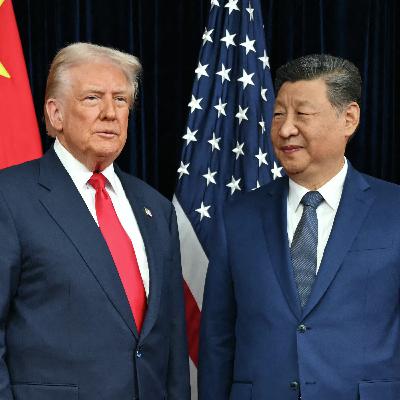
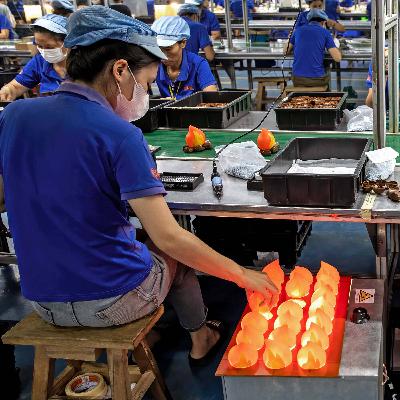
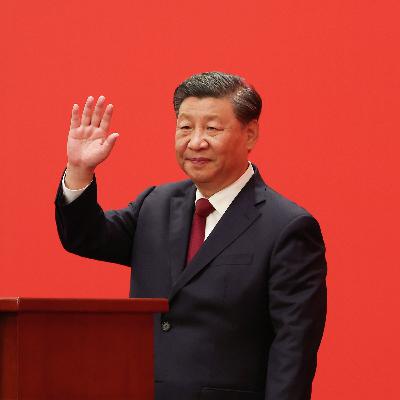

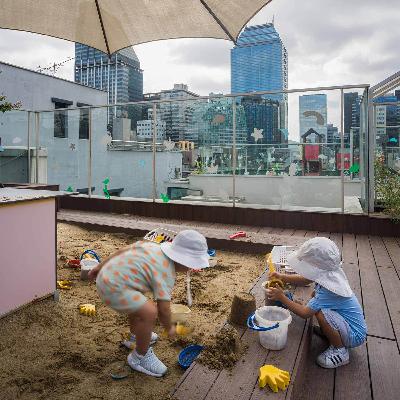
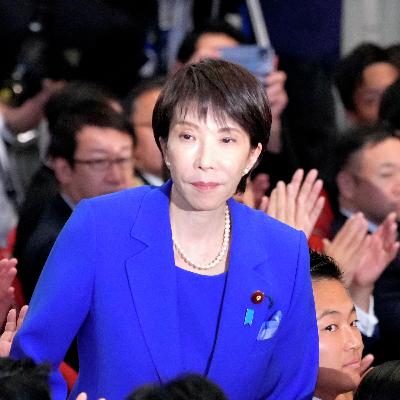


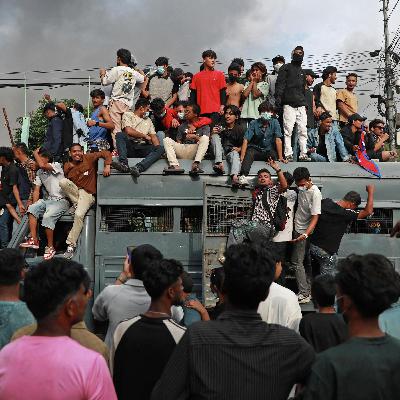
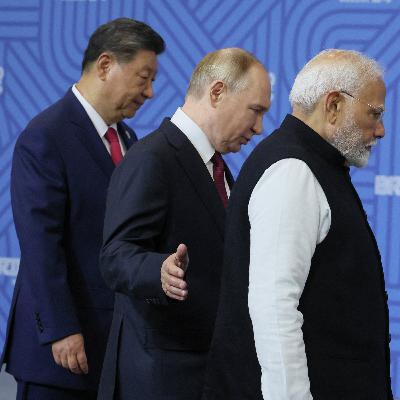
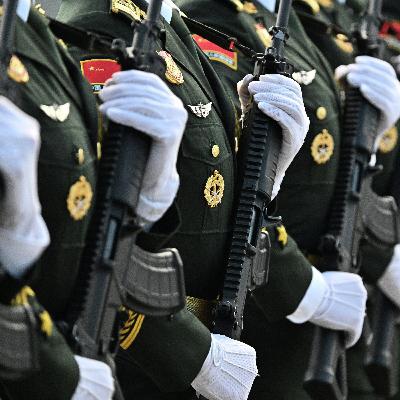

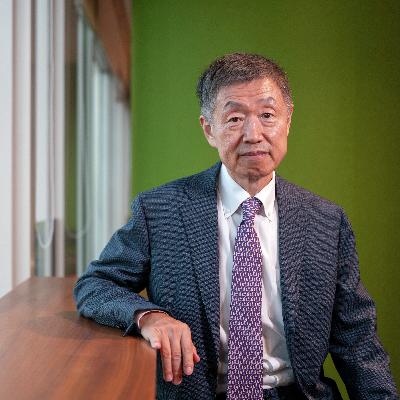
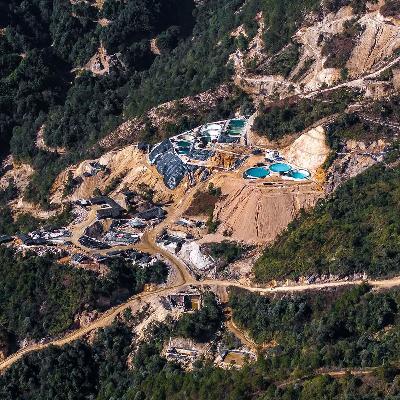

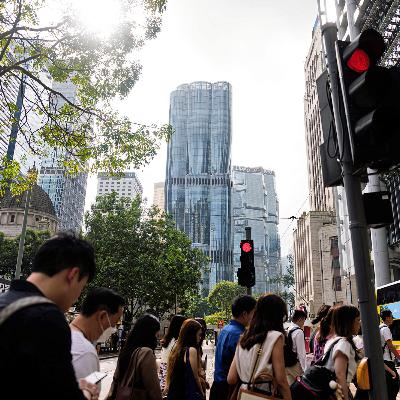



This is a little too one-sided. The claims of the Bangladesh government are almost certainly politically motivated and without merit. However, there is more to Muhammed Yunus than this report covers.Yunus is not a politician now, but he did flirt with politics in the past (as him about "Nagorik Shakti") and was initially asked to head up a caretaker administration, which some viewed as unconstitutional. I'm a Yunus supporter, but that doesn't mean we shouldn't give a balanced account of things.